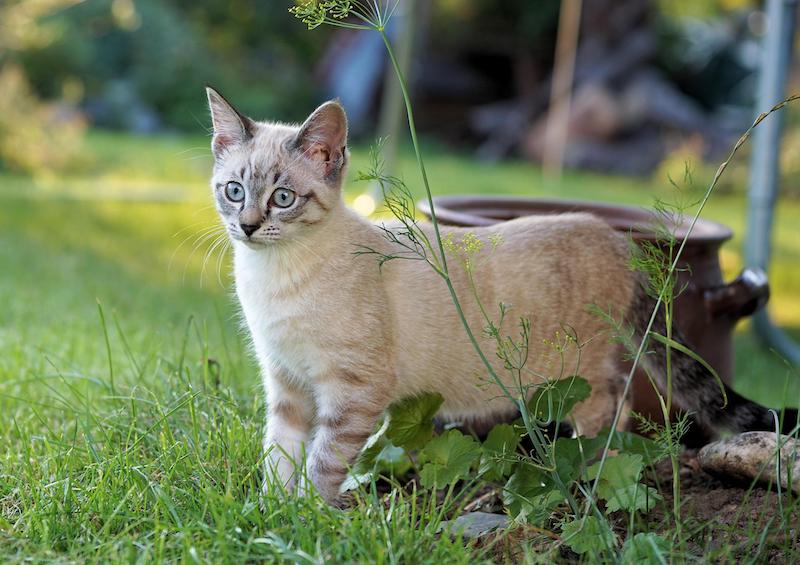Although Black-Eyed Susan is not considered toxic, no parts of the plant should be eaten. The stems, leaves and roots of Black-Eyed Susan have small hairs that can irritate the skin of some people and could cause asthma attacks in those with lung issues. The plant also has a bitter taste that prevents excess ingestion in most humans and animals. Some grazing livestock have been known to be poisoned by these plants. If you suspect that a child, pet, or other animal has eaten parts of a Black-Eyed Susan, contact your doctor or veterinarian as quickly as possible to begin treatment as needed.

Are Black-Eyed Susans Poisonous to Children?
Black-Eyed Susans aren’t poisonous for children, but they can cause contact dermatitis from the stems, leaves, and roots that results in irritation, swelling, or even rashes. The bitter taste of this plant usually means that children will not ingest much, but their mouths and face could become irritated after contact. If a child comes in contact with Black-Eyed Susans, they should remove their clothing to get rid of any hairs from the plant and wash the affected area with soap and water to dislodge any hairs on the skin.
Are Black-Eyed Susans Poisonous to Dogs?
Dogs won’t be severely harmed if parts of Black-Eyed Susan are ingested. Irritation of the mouth, face or paws could result from contact with the leaf and stem hairs. Stomach upset could occur from ingesting medium amounts of the plant. If a dog comes in contact with Black-Eyed Susans, they need to be brushed and bathed to remove any remaining plant hairs. Collars should be cleaned well before using in case any hairs remain. If your dog still has symptoms such as a rash or vomiting, call your veterinarian as soon as possible to determine a course of at-home treatment.

Are Black-Eyed Susans Poisonous to Cats?
Cats may have stronger reactions to ingesting Black-Eyed Susans than people or dogs. Ingesting any part of the plant may induce vomiting and result in irritation of the mouth and face. Often the reaction will be mild and not life threatening for the cat. If you suspect contact with Black-Eyed Susans, contact your veterinarian as soon as possible to determine at-home treatment.

Are Black-Eyed Susans Poisonous to Other Animals?
Livestock, especially pigs and cattle, can be affected by the hairy stems and leaves. The plant itself has a disagreeable taste that helps to deter any grazing. Animals that have ingested parts of Black-Eyed Susan will have symptoms of a rash around or inside the mouth, and irritation of other body parts that have rubbed against the plants. If you think that any of your livestock have ingested Black-Eyed Susan parts, contact your veterinarian as soon as possible for further advice and home treatment.
Symptoms Of Black-Eyed Susan Poisoning
Always check with your doctor or veterinarian for guidance if you suspect Black-Eyed Susan poisoning.
Here are some common symptoms to look out for:
- Rash or irritation on skin or inside mouth
- Upset stomach
- Vomiting
- Asthma flare-up
Preventing Black-Eyed Susan Poisoning
Black-Eyed Susans are not dangerously toxic to humans or animals. Irritation may occur from touching the plant, or upset stomach may result from eating many pieces of the plant. This is usually not a reason to exclude people or pets from a garden where Black-Eyed Susans grow. Teaching children not to play with or eat any plant without the permission of an adult is essential when you have a garden. Even a plant that does not bother a 150 lb adult can be dangerous to a 45 lb child.
Pet Poison Helpline
If something were to happen to your furry friend, and you suspect that they are suffering from Black-Eyed Susan poisoning, there is a poison control hotline to call for 24/7 vet advice. It is called the Pet Poison Hotline, and their phone number is (855) 764-7661.
Sources: "Allergic Reactions to the Black-Eyed Susan Flower." Poison Control - National Capital Poison Center. poison.org
 |
Author Robbin Small - Published 7-31-2022 |
